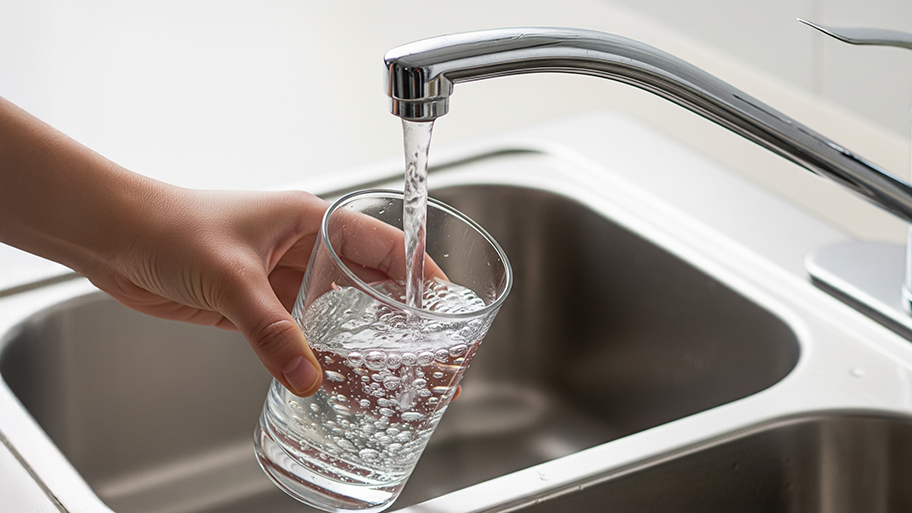
On average, a reverse osmosis water filter costs around $2,200, but there are a few variables that impact the total price. Learn about them in this guide.
Turns out hard water stains aren't hard to clean


Hard water can be beneficial for drinking, but it can also create unsightly stains on bathroom surfaces and dishes. The minerals in hard water make it less than obvious to know how to remove hard water stains from glass. Fortunately, you can easily clean those stains with a homemade hard water stain remover made of vinegar or baking soda (or a commercial cleaner). Here’s how to get started.
Vinegar is a naturally powerful acid that can dissolve mineral deposits and leave your glassware looking crystal clear. Here’s how to use it for a deep clean of hard water stains.
Mix a solution: Add equal parts white vinegar and water to a clean and empty spray bottle and stir it up. You can also mix the solution in a bucket, but a spray bottle will make it easier to cover large areas like shower doors.
Apply it to the stain: Spray the cleaning solution directly onto all visible hard water spots. If you're cleaning a shower door, start at the top and consider placing a towel at the base to catch any drips. Let the solution sit for 30 minutes to give it time to break up the stains.
Gently scrub the glass: After letting the solution sit for 30 minutes, use a wet microfiber cloth, soft sponge, or soft-bristled brush to gently scrub the hard water spots using circular motions. You can also use an old toothbrush for tough-to-reach areas. Just make sure not to scrub too hard.
Rinse and dry the glass: Once you scrub all of the hard water stains, rinse the glass with clean water, then dry it with a microfiber cloth.
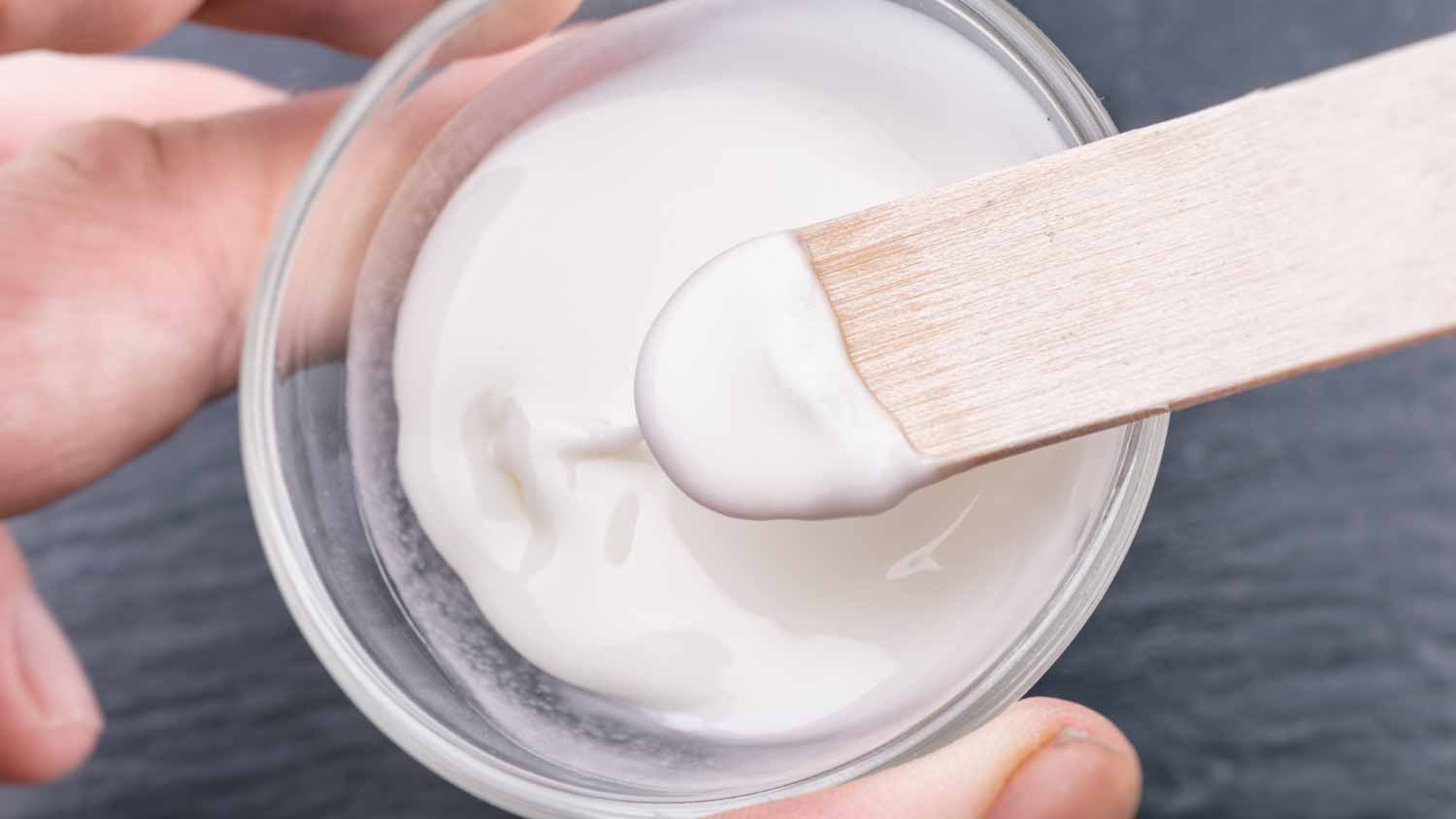
You can harness the powerful combo of vinegar and baking soda if a vinegar-only solution doesn’t cut it. Follow these steps to banish particularly troublesome hard water stains from glass:
Mix a paste: Mix a solution of three parts baking soda to one part water to create a gentle abrasive paste. Keep mixing and adding more baking soda or water until the paste reaches a toothpaste consistency.
Apply vinegar again: Set the paste aside for a moment. Use your spray bottle to apply more of the vinegar and water mixture to the remaining hard water spots. Let it sit for 30 minutes.
Apply the paste: Use a microfiber cloth, soft sponge, or soft-bristled brush to apply the baking soda paste to the stains, gently scrubbing in a circular motion. Let the paste completely dry, which takes about 10 minutes.
Apply more vinegar and gently scrub again: Once the paste is dry, spray more vinegar onto the hard water stains, letting it sit for a few minutes before scrubbing both the vinegar and paste away using the cloth, sponge, or brush you used previously.
Rinse and dry: Finally, rinse the entire area with clean water and dry it completely using a squeegee or a microfiber cloth.
If you need something more powerful than homemade mixtures, you can try a commercial hard water stain remover. Use caution with these because they can damage some surfaces, such as wood, stone, carpet, copper, and painted surfaces. Always follow the manufacturer instructions carefully, and wear protective gear, like gloves and a face mask, while giving hard water stains a deep clean.
Ventilate: Open doors and windows to ventilate the area and put on protective gear.
Apply and wait: Apply the stain remover to the stain using a spray, brush, sponge, or other application method and wait as directed by the manufacturer (often three to five minutes).
Rinse and dry: Rinse the solution with cold water. Completely dry the glass with a cloth or squeegee.
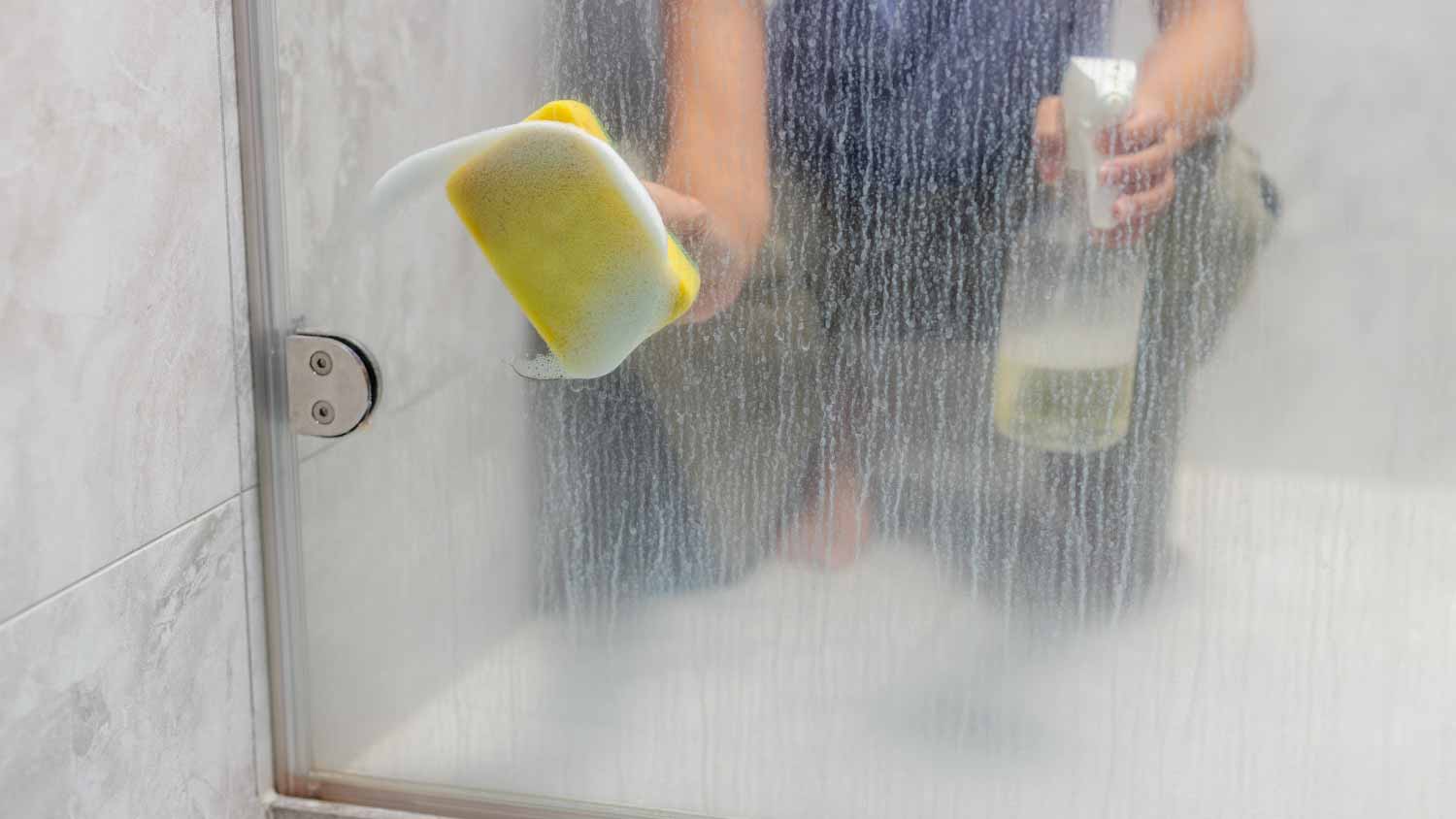
To decrease the amount of time you have to scrub hard water stains away, make it a habit to stay on top of it.
Wiping down your surfaces after each use.
Cleaning glass surfaces weekly with a white vinegar solution to keep hard water spots at bay.
For a more long-lasting and effective way to prevent hard water stains, install a water softener. Water softeners attach to your home’s water line to remove mineral content in the water before it reaches the tap.
Soft water makes soaps and detergents more effective, reducing the amount needed to clean surfaces, clothes, and even your body.
Most homeowners can clean hard water stains themselves, so there's no need to call a pro for this job. But if hard water is causing major issues in your home, such as deteriorating your plumbing, you should call a local water specialist to install a water softener for you. Water softeners cost $200 to $6,000 to install, depending on the size and complexity of the system.
From average costs to expert advice, get all the answers you need to get your job done.

On average, a reverse osmosis water filter costs around $2,200, but there are a few variables that impact the total price. Learn about them in this guide.

Wondering about water treatment system costs? Learn average prices, key cost factors, and ways to save on installation and maintenance for your home.
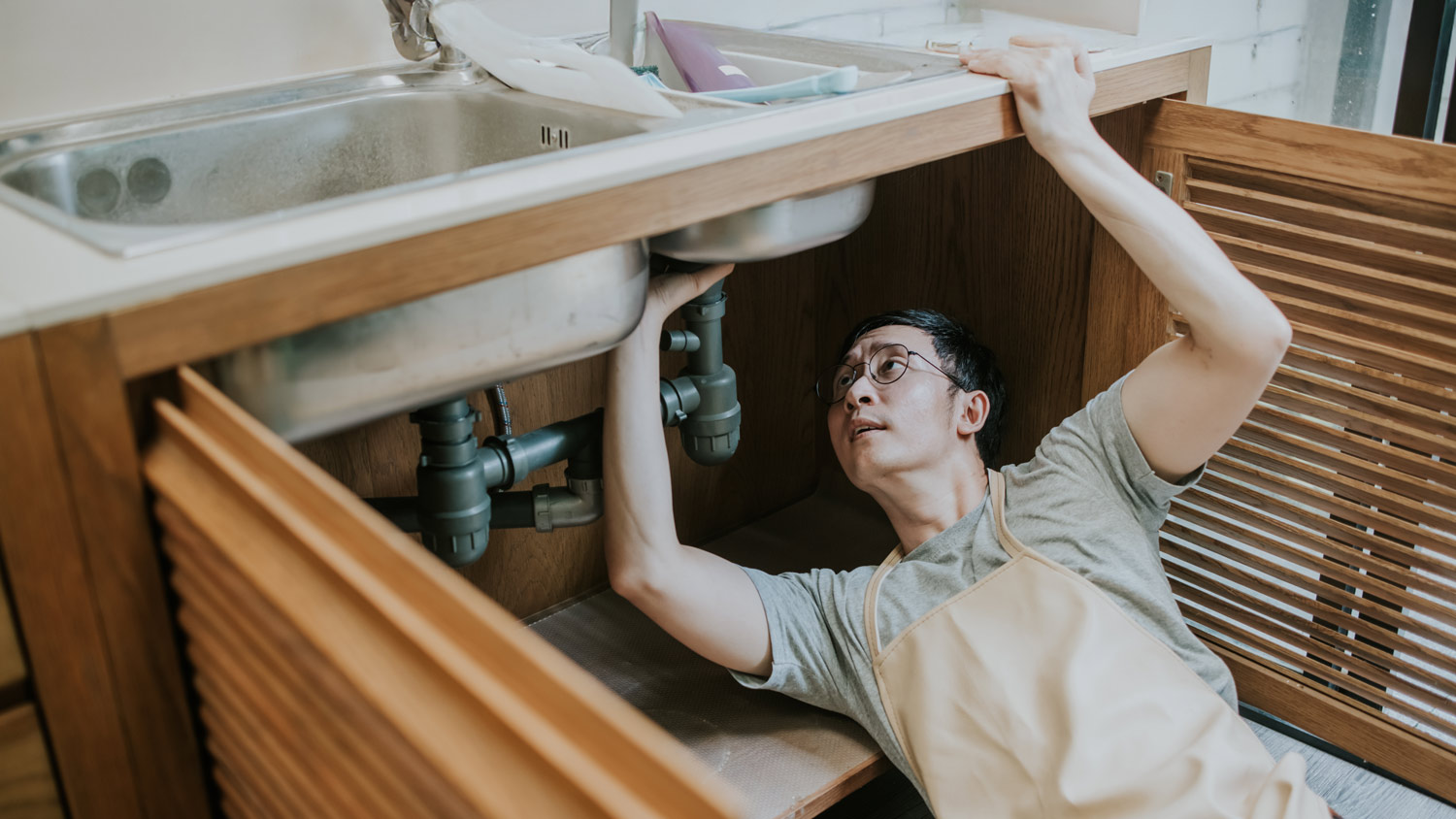
Your cost to install an under-sink water filter will depend on the type and size of system you choose and whether you need professional installation.
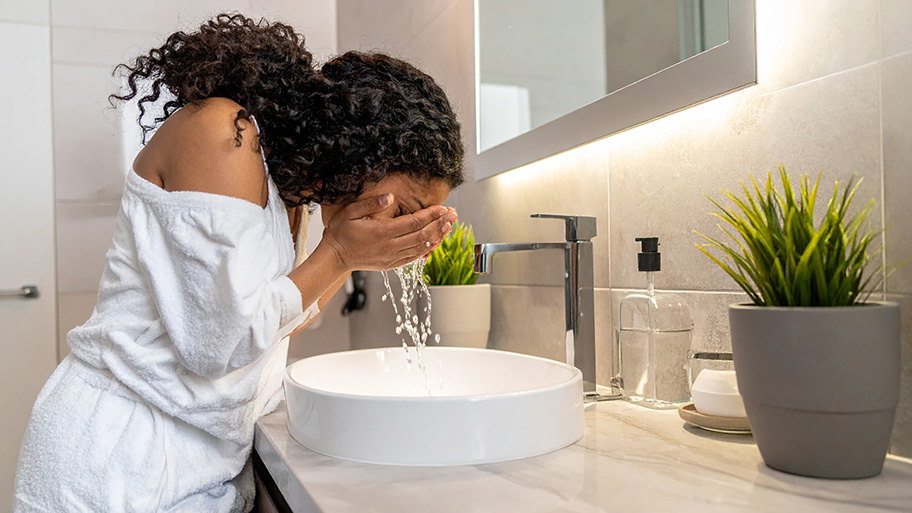
There are many pros and cons of salt-free water softeners that could impact your decision to buy one. Stay tuned to learn more about salt-free water softeners.

If your home has hard water, it can damage your appliances, including the water heater. Find out if you need a water softener for your tankless water heater.
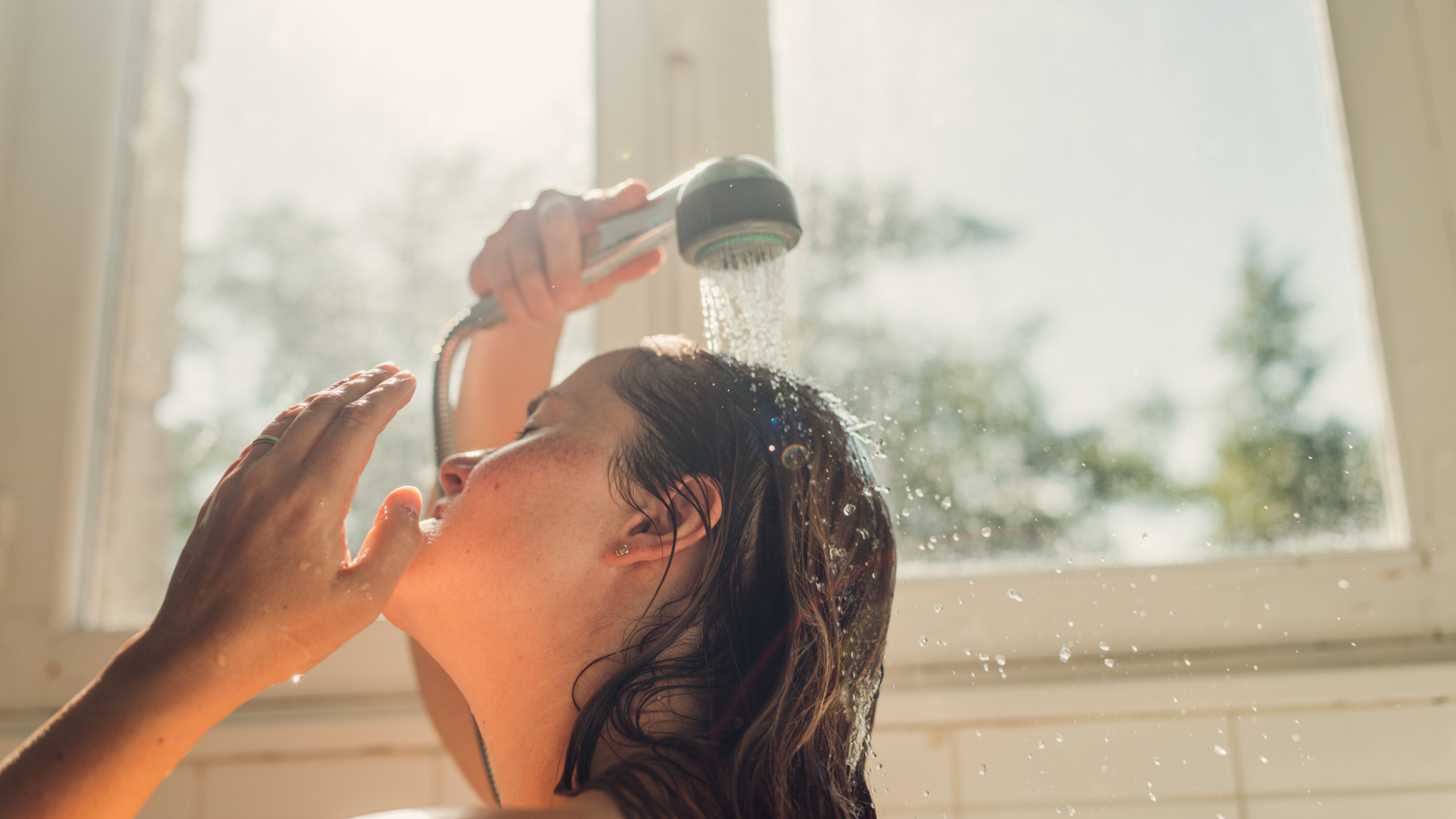
Are water softeners worth it? While they offer benefits to many homeowners, they aren’t always necessary. Learn whether this appliance will pay for itself.